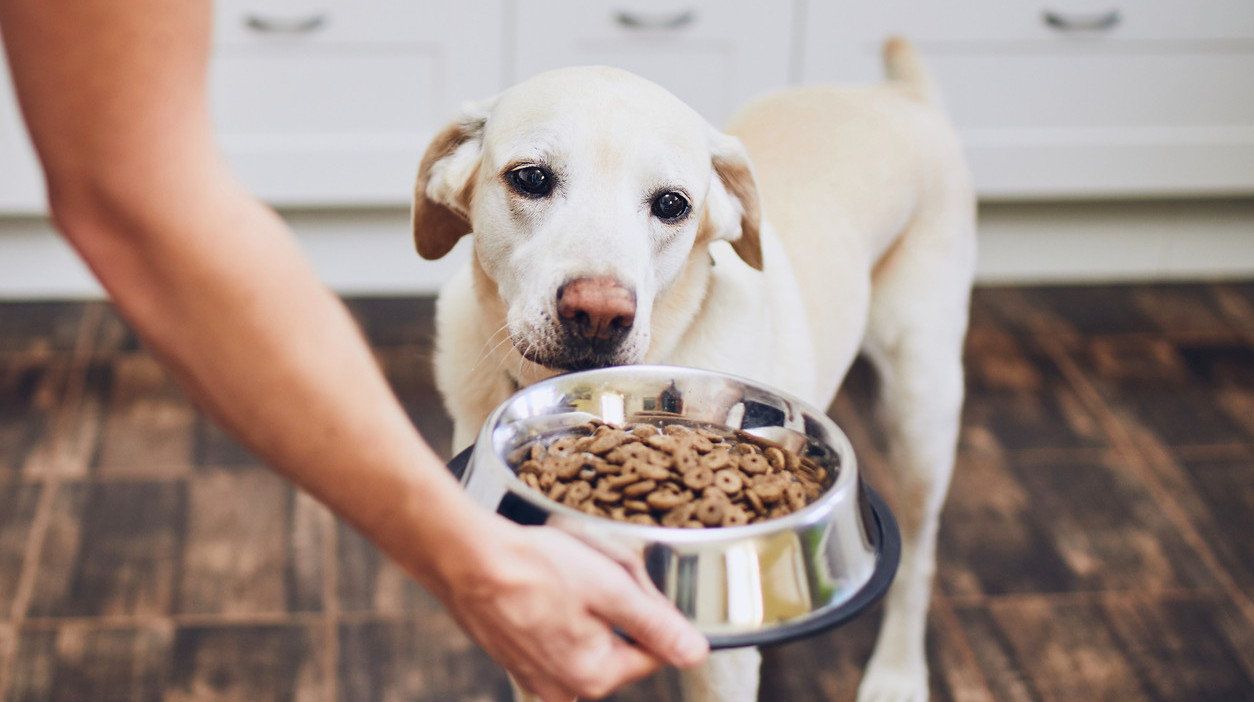Will Grain-Free Food Hurt My Dog?
Being a pet owner means you ought to have "sucker" tattooed on your forehead. Unlike people with actual human children, you don't have to worry about preparing your charge to live as an independent adult in human society. There's no need to fret about the adverse effects of giving your pet exactly what they want when they want it. It's not like they're going to go to kindergarten tomorrow and start stealing someone else's toys and then grow up to be a Wall Street banker (though if they are a banker, maybe they'll be able to support you in your old age, so that's something). All you care about is your pet's health and longevity, and pet food companies know you will spend as much money as you have to keep your pet healthier longer.
And therefore, you'll find yourself beset by dog food companies telling you that you should be feeding your dog kangaroo meat and salmon because it's healthier and you should be avoiding grains because they cause allergies and whoops, never mind, grain-free food is bad and causes heart disease and if you love your dog, you will cook for them... At this point, you will throw your hands up in the air and go to the nearest big-box pet store and grab whichever 50-pound sack of kibble is on sale.
Here are the plain facts: in 2018, the FDA sent out an alert that there had been reports of canine dilated cardiomyopathy (DCM) in dogs that were not genetically prone to the disease. DCM is caused by a deficiency of the amino acid taurine and results in an enlarged heart and eventual heart failure; it's most commonly seen in large breeds such as boxers, Newfoundlands, and Great Danes. (It's also more common in cats, which is why many cat food manufacturers brag about extra taurine.) The dogs that the FDA had been alerted to, however, were golden and Labrador retrievers, whippets, a shih tzu, a bulldog, miniature schnauzers, and a few mutts. The one thing they had in common was that they were eating a diet of pet food that contained peas, lentils, other legume seeds, or potatoes as main ingredients. These are most often the main ingredients in food labeled "grain free."
But, the FDA said, there wasn't a clear link between DCM and a grain-free diet and it would continue to study the matter. Six months later, a team of veterinarians at the University of California-Davis published a study in the journal PLOS ONE that showed an increase in taurine in 23 golden retrievers after the dogs were switched from a grain-free or legume-rich diet to one that was more balanced; in addition, several of the dogs who had congestive heart failure showed signs of recovery.
Still, it was a small study, and the lead author, Joshua Stern, said at the time that the blame may not have been solely on the grain-free diets but the interaction of ingredients in several pet foods. Lisa Freeman, a nutritionist at Tufts University's Cummings Veterinary Medical Center, has speculated that the rise in DCM may have multiple causes: taurine deficiency and something else that has yet to be determined. The main thing, though, is that dog owners should stop feeding their pets grain-free kibbles and exotic meats like kangaroo since dog food allergies are very rare. She recommends buying food from companies that use extensive testing and quality control and have certified veterinarians on staff. These tend to be the biggest commercial pet food companies: Purina, Hill's, Royal Canin, and Eukanuba. The FDA, in a survey of reports of DCM it had received (released a year after the initial alert), noted that the majority of affected dogs were fed dry food and the top three brands they were eating were Acana, Zignature, and Taste of the Wild.
We could go down a much deeper rabbit hole here—there's a metaphor here about dogs chasing rabbits and never coming up with anything, just like there's no definitive answer to what's causing those cases of DCM. The simple answer: No one can say with complete certainty that grain-free food will harm your pup, but maybe, just to be safe, you should steer clear of it.
